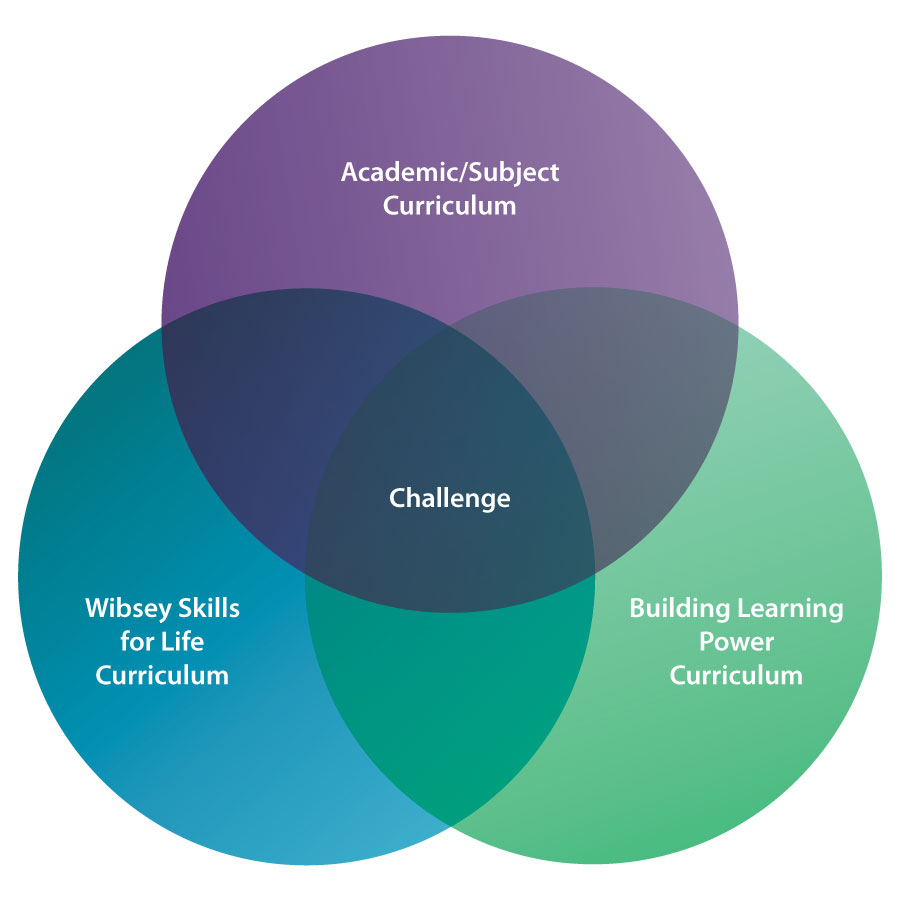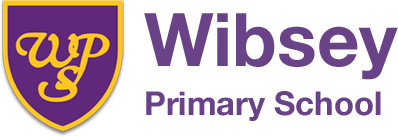Curriculum

At the heart of the curriculum at Wibsey is the desire to pursue excellence in academic subjects, in personal and social growth and in the other interests and talents that our children hold. We understand that it is vital for every child to succeed academically but that, in order to lead fulfilled and happy professional and personal lives, the need to develop well personally and socially is of equal importance. This belief underpins our approach to the curriculum
The curriculum at Wibsey Primary School is unique – the triple venn diagram illustrates the relationship between the three strands of our curriculum – Wibsey Skills for Life, Building Learning Power and the rigour of the National Curriculum academic subjects – which combine to provide challenge for all our pupils, whatever their starting points.
By developing and refining a rich curriculum we will be meeting the learning needs and interests of every child as we scaffold them as they progress to independence. The range of experiences we offer supports our children academically but also ensures that their spiritual, moral, social and cultural needs are met. We are proud of our curriculum and the experiences we provide for our children – it encourages them to aim high and gives them the knowledge, skills, confidence and self-belief to follow their hopes and dreams in life.
Through the ethos of the school and the curriculum, children are encouraged to develop learning skills and behaviours to build lifelong learning powers. These will enable our children to be confident, capable and creative life-long learners who are resilient to the challenges a changing world presents them with.
Our school curriculum is rooted in research:
- Building Learning Power Curriculum – this approach created by Professor Guy Claxton is based on the understanding that we are all capable of becoming better learners. Research evidences that when pupils become better learners, who can think and learn for themselves, and reflect on their own learning, they learn more deeply and their attainment rises (NCSL 2015)
- Wibsey Skills for Life (WSFL) Curriculum – this is a wholistic approach to SMSC, well-being and safeguarding which encompasses personal development across the whole curriculum. Bonnell et al (2014) evidenced that integrating children’s SMSC in this way results in happier, healthier pupils who are more engaged in their learning; this consequently results in the raising of attainment
- Academic / subject attainment – National Curriculum subjects are taught through the Wibsey Cumulative Curriculum. Through this, learning is cumulative with new knowledge carefully sequenced to build on, and incorporate, previous learning (Maton 2019; James and Pollard 2011). Delivery of the curriculum is through an inquiry-based methodology which evokes curiosity and motivates pupils. Our curriculum is strong in skills development and knowledge rich.
Where possible school uses a cross-curricular approach. This means that skills, knowledge and understanding across a range of subjects are brought together and form a theme of learning across each half term. Within the theme, which is framed within a question to investigate, children are able to practise, apply and develop their literacy and numeracy skills in other curriculum areas, with the skills taught being differentiated for the year group and ability of the pupils. We believe that reading opens the door for every child to succeed and consequently we are on a journey to become a reading community; reading underpins everything we do – we are learning to read, reading to learn and reading for pleasure.
